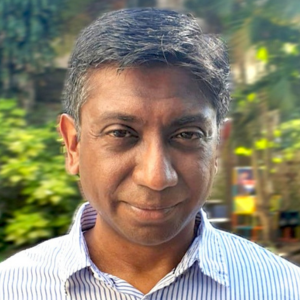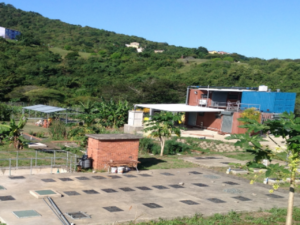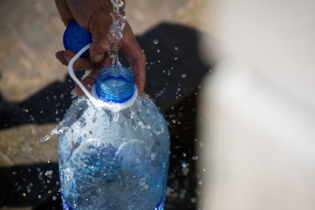Randhir Rawatlal (RR), director of the UKZN WASH R&D Centre, answers questions about sanitation technology and the future of the centre.
The Pollution Research Group was established in the 1970s and then the UKZN WASH R&D Centre was formed in 2020. You have been operating for over 50 years. What has changed over the years and what has remained the same?
RR: We originally focused on wastewater recovery and water reuse. Over time, this has grown to include the non-sewered sanitation challenges that affect half the global population. With the emergence of the 4th Industrial Revolution (4IR), machine learning and Geographic Information Systems (GIS), we have new tools to tackle spatially distributed problems and basic service delivery. Throughout our history, we have had a strong focus on community impact, providing solutions that affect large societal problems. Our approach has been multi-disciplinary to address the complex issues comprehensively. We have always used mathematical modelling. You are currently re-positioning the UKZN WASH R&D Centre to support the sanitation tech developers to better access the anticipated larger market as a result of legislative changes. What support can you give developers in the sanitation space?
Randhir Rawatlal, director of the
UKZN WASH R&D Centre
- water management
- sanitation technology testing and development
- circular economy
- one health.
When projects are identified where we don’t necessarily have the expertise or it is not a growth area for us, we pass along the interest. We are saying ‘No’ to work that is not central to our vision, but we do try to connect people and keep informed as to how things are progressing. We also maintain a regular seminar programme through which we keep abreast of other developments.
What are some of the challenges experienced by the WASH sector? The first challenge is our growing population.Around 30% of people living in South Africa do not have access to hygienic and safe sanitation facilities. There is a real challenge in making sanitation technologies accessible.The second challenge is turning our waste into a resource. For example, there is a global phosphorus shortage that will have a severe negative impact on food production in the future. However, wastewater contains vast amounts of phosphorus, and various projects around urine diversion and biochar can return phosphorus to the soil. There is a challenge in creating a circular economy. What are some of KZN WASH’s most recent achievements? We have supported a large body of tech developers, that has culminated into a recent event attended by representatives from the Gates Foundation, the eThekwini Municipality, the Mayor’s office and leadership from the Department of Water and Sanitation. The UKZN WASH R&D Centre has played a role in having those sites functional and developing the technologies to their various stages. We are proud to see these tech developers and community sites being recognised at such a high level. The WASH R&D Centre has also contributed significantly to the development of ISO standards for the testing and accreditation of sanitation technologies. Not only have we provided input on a global level, but are also contributing to the development of standards on a national level in South Africa, and the formulation of a framework for municipal bylaws to guide municipalities in the implementation of alternative sanitation technologies. We are also proud to note the graduation of our postgrad students as well as several publications in scientific journals. In a recent presentation to eThekwini Municipality, we presented our findings in respect of three pieces of technology which were at various stages of development. This was a comprehensive piece of work where the science, innovation and community support were all integrated in one place. I was impressed with the high level of rigour and level of thought that goes into the sanitation technology before it is accepted. I don’t think that there are many places around the world that evaluate sanitation technology to this level. It is a great example of what can be done to support the reception of effective sanitation and hygiene and promote the health in our society. What excites you about UKZN WASH R&D Centre? There is so much passion in the sanitation sector. Every person who is part of the UKZN WASH R&D Centre is aware of the societal impact of our work . The Centre brings together research from different fields and far flung places. It is also a privilege to play a small role in achieving the vision of the much loved and respected Prof Chris Buckley, with whom I had many conversations about his challenges in the field and with integration with the university. It is his legacy that has given a strong foundation for the UKZN WASH R&D Centre upon which to build.






